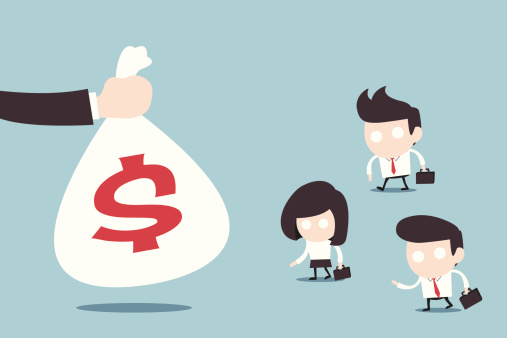
Early wage access programs are a type of benefit offered by some employers that allow employees to access their earned wages before their scheduled payday. Experts like Walter Greenfeld in Brooklyn, NY, know these programs can be helpful for employees who need to cover an unexpected expense or who want to avoid taking out a high-interest loan.
What Is An Early Wage Access Program?
Early wage access (EWA) programs aim to help workers bridge the gap between pay periods by providing them access to earned wages more frequently. There are several models for EWA programs, but they all share the same goal of helping workers improve their financial stability and well-being.
Walter Greenfeld says one standard EWA program model is “on-demand pay.” With this program, workers can request a portion of their earned wages at any time, up to their pre-determined limit. The funds are deposited into the worker’s account within a few hours or days. Employers can offer on-demand pay programs as a benefit to their employees, or third-party providers can provide them.
Another model for EWA is called “scheduled disbursements.” With this program, workers designate in advance when they would like to receive their earned wages. The funds are transferred to the worker’s account on the selected date. Scheduled disbursements may be less flexible than on-demand pay programs, but they can still help workers improve their financial stability by giving them more control over their cash flow.
EWA programs have the potential to provide many benefits to both workers and businesses. Workers who have access to earned wages more frequently are less likely to experience financial shocks and are better able to meet their essential needs. This can lead to improved health outcomes and increased job satisfaction and retention. Businesses that offer EWA programs may also see reduced turnover and improved employee productivity.
Walter Greenfeld says while early wage access programs can offer many benefits, some potential risks should be considered. One chance is that workers may use the funds from an EWA program to cover non-essential expenses, leading to further financial instability. Additionally, if an employer offers an EWA program as a benefit, there is the potential for abuse if employees request wages that have not yet been earned. As with any new program or policy, it is essential to consider the risks and benefits before implementing an EWA program at your business.
Do You Need an Early Wage Access Program?
If you’re struggling to make ends meet or have a tight budget, an early wage access program could be a good solution. These programs can help you avoid overdraft fees, late payment penalties, and other financial challenges. However, there are some things you should keep in mind before signing up for an early wage access program.
How Much Does It Cost?
There is typically a small fee associated with early wage access programs. This fee generally is a percentage of the amount you withdraw. For example, if you withdraw $100 from your paycheck using an early wage access program, you may owe a $2 fee.
Some employers offer free early-wage access programs, but this is rare. If your employer charges a fee, compare the cost of the price to the cost of alternatives like overdraft fees or payday loans. In most cases, the payment will be lower than these other costs.
Are There Limits on How Much You Can Withdraw?
Most early wage access programs limit how much money you can withdraw from your paycheck each pay period. For example, you may be able to withdraw up to 50% of your earned wages each pay period. If you need more money than the limit allows, you may be able to contact your provider to request an increase.
Some limits are based on the amount of money you make each pay period. For example, you may be able to withdraw up to $500 per pay period if you make $1,000 per pay period. If you make more money, you may be able to remove more.
When Will the Money Be Available?
Walter Greenfeld says the amount of time it takes for the money to be available will vary depending on the program you use. Some providers make the funds available immediately, while others may take a few days or even a week.
If you need access to the money immediately, choose a program that offers immediate availability. If you can wait a few days, you may be able to find a program with lower fees.
What Happens if You Quit Your Job?
If you leave your job, you will no longer have access to your early wage access program. If you have any outstanding balances when you quit your job, you must repay them in full on your next payday. Make sure you consider this when budgeting for expenses like moving costs or job search expenses.
Conclusion
Early wage access programs can be a helpful tool for those who are struggling to make ends meet or who have a tight budget. These programs come with some costs and restrictions that you should be aware of before signing up, but in most cases, the benefits outweigh the costs. If you’re considering an early wage access program, talk to your employer to see if they offer one and whether it’s right for you.
You may be interested in: What is a salary? Definition and meaning

